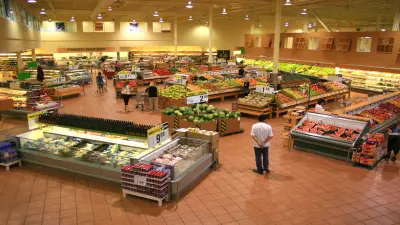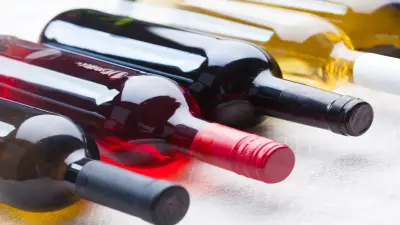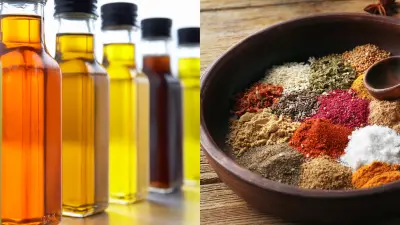How Do You Spot the Real Deal When Your Plate is Full of Fakes?
Author: Origify
Publishing Date: May 16, 2024

Counterfeit products have become a widespread issue, impacting numerous markets across the globe.
And then comes the industry we love the most: food and beverages. We all enjoy treating ourselves to delicious food and drinks, but what if the products we're consuming aren't what they appear to be? Counterfeit food and liquor are products that are intentionally mislabeled or misrepresented. The food industry is expansive and intricate, supplying sustenance to people worldwide daily. However, there is a troubling increase in counterfeit food and beverages being sold, which not only pose potential risks to human health, but also threaten financial losses, damage brand reputation, and erode customer trust.
In a statement to the World Trademark Review on May 18, 2017, Michael Ellis, the head of INTERPOL’s Trafficking in Illicit Goods Unit, expressed grave concern over the threat posed by counterfeit and hazardous food and drink products. Ellis's remarks were made in response to the results of Operation Opsen V, which led to the confiscation of over 10,000 tons and 1 million liters of potentially dangerous fake food and drink.
Counterfeiting in Beverages
Imagine uncorking a bottle of your favorite wine, only to discover it's a fake. The counterfeit spirits industry not only hurts producers but also leaves consumers with a bitter taste.
Did you know that, according to a report by the European Union Intellectual Property Office in 2016 (EUIPO), the combined annual sales of spirits and wine in the EU amounted to approximately €38 billion? It's a huge industry, yet unfortunately, around €1.3 billion (3.3%) of that value is lost due to the presence of counterfeit products in the marketplace. This not only impacts the revenue of legitimate producers and distributors but also poses a risk to consumers who may unknowingly purchase and consume fake products.
The impact of these lost sales is significant, resulting in the direct loss of 4,800 jobs across the spirits and wine sectors in the EU. Legitimate manufacturers are forced to employ fewer people than they would have in the absence of counterfeiting, affecting the workforce and the economy. It's clear that the presence of counterfeit products has far-reaching consequences beyond mere revenue loss.

Counterfeiting in Food

Counterfeiting is not limited to the spirits and wine industry; it extends to the food sector as well. Surprisingly, no product is immune from counterfeit. With high demand, the supply needs to be matched, leading to fraudulent activities in the food industry, particularly with commonly used items such as spices and oil.
If you're spending so much money on something, you should know what you're getting, right? But it's not that simple. However, the reality is far more complex. Food fraud affects everyone, not just those purchasing luxury items. From everyday staples like olive oil and spices to high-end products like wine and caviar, counterfeit foods and beverages are pervasive in the market.
In fact, spices are one of the most common and most counterfeited food products. According to research conducted by the University of California , spices are highly susceptible to adulteration and substitution, often containing fillers like flour, rice, or other cheaper spices to increase profit margins.
Why is food and beverage fraud such a significant issue for brands beyond the obvious health and safety concerns?
While the risks to consumer health are paramount, the repercussions of food fraud extend far beyond this, affecting brand reputation, consumer trust, and market share.

In addition to potential legal and financial consequences, food fraud can disrupt supply chains, leading to long-term damage that goes beyond immediate health risks. Here you can learn about the use cases of the product authentication solution Origify.
Let us delve into more detail about how counterfeit products affect us and our society:
• Public Health Risk
The potential harm that may affect public health and safety is one of the most alarming effects of counterfeit food and beverage products. Adulterated food products may contain harmful substances such as pathogens, toxic chemicals, allergens, and other poisonous elements, which can lead to a variety of health-related issues, some of which may even be fatal in nature.
• Economic disruption
Counterfeited products push legitimate businesses towards losses, directly impacting the global economy. Counterfeit food and beverage products account for the loss of billions of dollars in revenue per year globally, significantly impacting producers and governments in the form of reduced tax revenue.
• Brand Reputation
The reputation of authentic product producers is being damaged by the increasing availability of counterfeit products on the market. Consumers often experience disappointment after purchasing counterfeit products, and if the products are consumed, they can even lead to serious health problems. As a result, consumers may lose trust in reputable brands, and the number of customers decreases significantly due to the loss of brand loyalty.
• Quality Standard of Goods Producers
The increasing availability of fake goods has led to the disregard of quality standards and safety regulations, undermining the efforts made by regulatory bodies to ensure the safety and quality of food and beverages available for consumption.
• Environmental Damages
Illicit and unregulated practices often contribute to environmental damage caused by the production and distribution of adulterated and counterfeit food and beverage products. Illegal practices include improper waste disposal, illegal fishing, unsustainable farming practices, the use of harmful chemicals, and other unauthorized activities.
How to tackle counterfeit food and beverage products?
Tackling counterfeit food and beverage products requires a multifaceted approach involving various stakeholders. Here are some effective strategies:
• Strengthening Regulatory Frameworks
The production and distribution of food and beverages should be regulated appropriately and promptly. Government and international organizations need to work together to set the standards for quality control and strictly enforce the regulations. Introducing strict rules regarding product design requirements, brand labeling, traceability technology, food safety regulations, and imposing penalties for violators can help in combating counterfeit food and beverage products.
• Technological Solutions
Technological solutions such as blockchain, QR codes, and RFID tags are crucial in combating counterfeit food and beverages. However, relying solely on technology isn't enough. Brands need a dependable product authentication solution to safeguard their reputation. That's where Origify comes in.
Origify offers a simple yet effective authentication solution, enabling consumers to easily verify product authenticity. It works by identifying the natural surface characteristics of the product, such as on seals and labels, and creating a unique pattern signature. Just like human fingerprints, product patterns may appear similar but exhibit significant differences when closely examined. This digital signature is then compared to previously stored signatures to verify authenticity. Verification is obtained through a straightforward smartphone application. Furthermore, apart from our Bosch application, you have the option to utilize a Software Development Kit (SDK) or a white-label app. For further information, please visit our blog.
• Consumer Awareness and Education
In addition to technological solutions, raising consumer awareness is crucial. Educating consumers about the risks of counterfeit food and beverages and empowering them to identify authentic products can significantly aid in combating counterfeiting. Generating awareness about the potential risks of consuming adulterated products and learning how to identify the authenticity of the products are some of the important aspects through which consumers can protect themselves in the fight against counterfeiting and support legitimate businesses.
• Collaboration Across the Supply Chain
Creating a seamless and secure supply chain process necessitates collaboration among producers, distributors, retailers, and regulators. By implementing transparent and accountable practices, brands can effectively prevent counterfeit products from entering the market. Origify provides innovative cloud systems that store data points for part tracking, enabling transparent supply chains and facilitating defect traceability.
In conclusion, addressing food fraud is a complex challenge that affects the global food supply chain. To combat this issue effectively, it's crucial for regulators, industry stakeholders, and consumers to work together. By implementing a combination of regulatory measures, advanced safety systems, analytical techniques, and technological innovations, we can significantly reduce the risk of food fraud. Protect your brand from counterfeiting with Origify's authentication solution. Our technology ensures product integrity, providing peace of mind for both brands and consumers.
Contact us today and learn more how you can ensure your consumer plate comes with a garnish of trust.